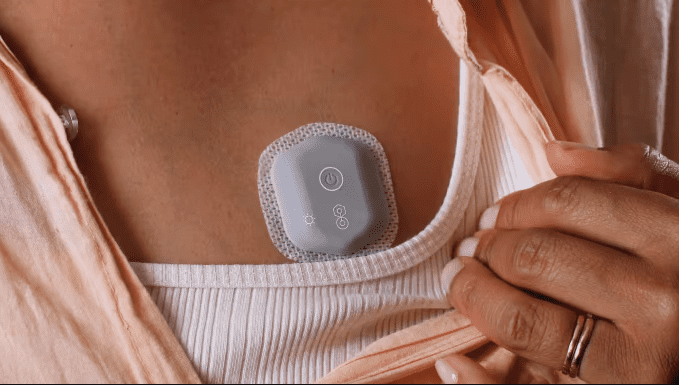Aiming to capture some of the “fix it and forget it” mystique of so many of the world’s great household devices, BioIntelliSense has unveiled yet another iteration of its wearable technology for passive, continuous health data collection.
BioIntelliSense’s FDA-cleared BioSticker and medical-grade BioButton both use an adhesive to stick onto a user’s upper chest, where the devices proceed to capture readings of dozens of vital signs and physiological symptoms for weeks at a time.
And while the original BioButton—which launched in 2020, amid the first peak of the COVID-19 pandemic—was designed as a single-use device that could be thrown away after up to 90 days of data collection, a newly launched version will now last much longer.
Unlike its predecessor, which lasts the entire allotted three-month period on a single charge, the BioButton Rechargeable device requires a recharge about every two weeks. That said, rather than getting tossed out and replaced every quarter, the rechargeable model can be used for many more months or even years with regular re-powering sessions.
Aside from its technical specs, the new and improved BioButton offers the same basic promise of BioIntelliSense’s other adhesive wearables: It continuously measures more than 20 medical data points, including body temperature, heart and respiratory rate, activity levels and gait analysis. It also monitors infection-related symptoms like vomiting, sneezing and coughing.
Those data are then wirelessly transmitted via Bluetooth to the BioMobile app, where healthcare providers can examine changes over time in each patient’s vital signs and physical symptoms.
“The BioButton Rechargeable is the easy button for a healthcare workforce in crisis, realizing a new standard in remote care that is effortless for the patient and clinician while allowing providers to scale care without scaling costs,” said James Mault, M.D., BioIntelliSense’s founder and CEO.
Though not cleared by the FDA, the BioButton is listed as a medical-grade device available both over the counter and via prescription for people aged 18 and up. It’s not indicated for critical care patients, and its collected data aren’t meant to be used as a primary source to determine diagnosis or treatment of COVID-19 or other illnesses, according to the company.
The BioButton first debuted in May 2020, when it was advertised as a coin-sized option to monitor symptoms of the coronavirus for up to 90 days at a time. BioIntelliSense also developed an online portal that could connect to the devices and use their collected data and the results of daily health surveys to automatically determine whether an individual could be cleared to return to work or school.
The company’s success in developing remote patient monitoring tools amid the pandemic caught the attention of Philips, which in July of 2020 tapped BioIntelliSense to integrate the FDA-cleared BioSticker—which lasts 30 days at a time—into its existing remote patient monitoring portfolio.

